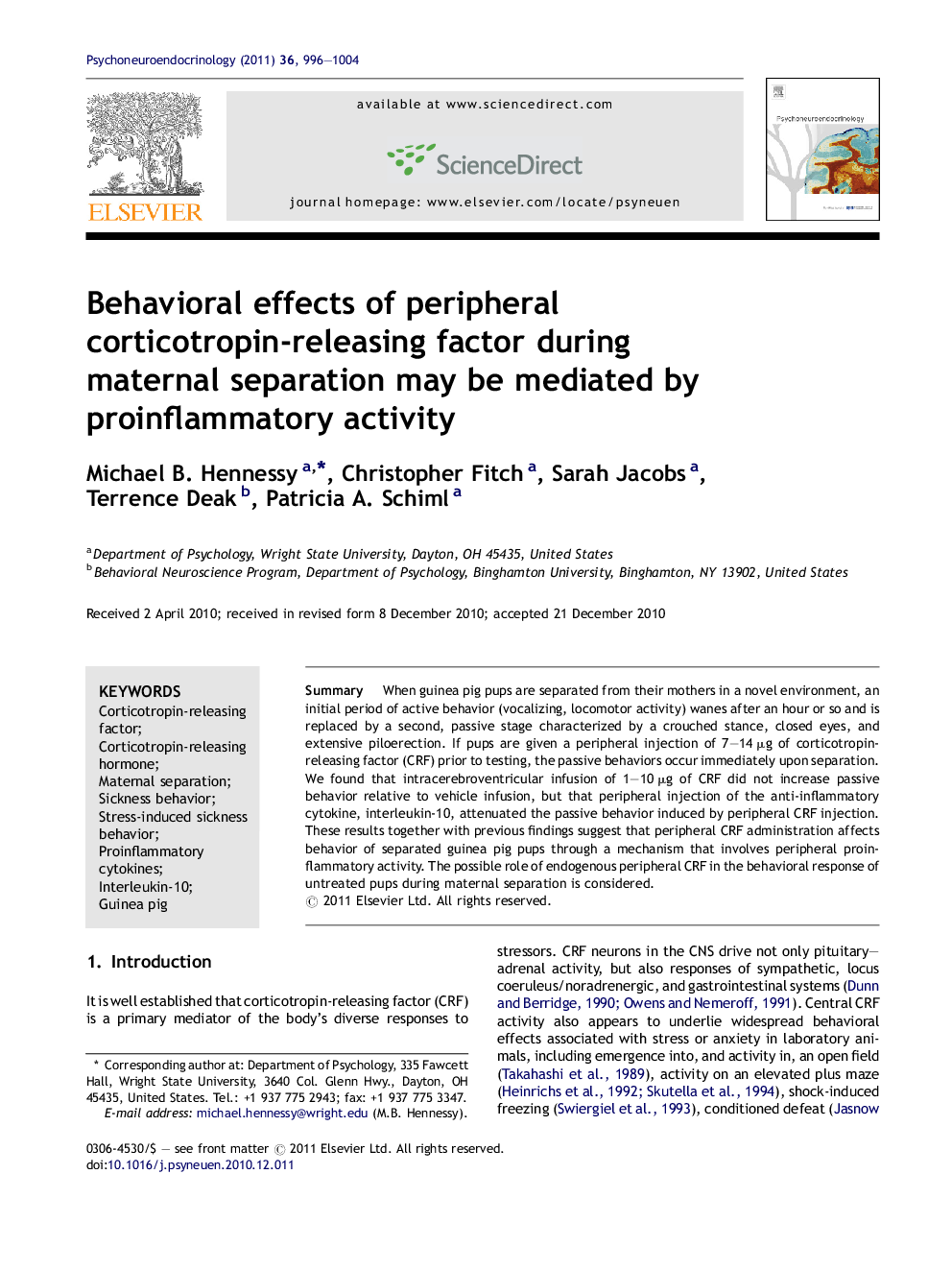| Article ID | Journal | Published Year | Pages | File Type |
|---|---|---|---|---|
| 10306421 | Psychoneuroendocrinology | 2011 | 9 Pages |
Abstract
When guinea pig pups are separated from their mothers in a novel environment, an initial period of active behavior (vocalizing, locomotor activity) wanes after an hour or so and is replaced by a second, passive stage characterized by a crouched stance, closed eyes, and extensive piloerection. If pups are given a peripheral injection of 7-14 μg of corticotropin-releasing factor (CRF) prior to testing, the passive behaviors occur immediately upon separation. We found that intracerebroventricular infusion of 1-10 μg of CRF did not increase passive behavior relative to vehicle infusion, but that peripheral injection of the anti-inflammatory cytokine, interleukin-10, attenuated the passive behavior induced by peripheral CRF injection. These results together with previous findings suggest that peripheral CRF administration affects behavior of separated guinea pig pups through a mechanism that involves peripheral proinflammatory activity. The possible role of endogenous peripheral CRF in the behavioral response of untreated pups during maternal separation is considered.
Keywords
Related Topics
Life Sciences
Biochemistry, Genetics and Molecular Biology
Endocrinology
Authors
Michael B. Hennessy, Christopher Fitch, Sarah Jacobs, Terrence Deak, Patricia A. Schiml,
